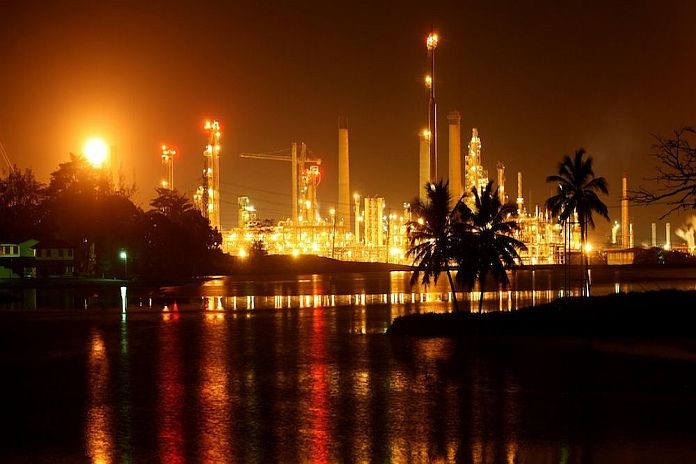Dear Sir:
There is an understandable concern about the future of Point Lisas Industrial Estate. In the last four years, plant closures on the Estate include the Mittal steel complex, two MHTL methanol plants and recently the Yara plant. One MHTL plant has since restarted but the MHTL M1 plant remains down.
More recently it has been reported that negotiations for a new natural gas supply contract between the NGC and Methanex for the Titan plant are not been going well. There are three issues affecting the competitiveness of Point Lisas.
They are:
- Curtailment of natural gas supply;
- Higher natural gas prices, and
- Falling ammonia and methanol prices.
The issue of curtailments has been with the Estate and the country since late 2010 and continues to be with Trinidad and Tobago to the current day. Its worst period was 2016 and 2017. Since 2018 there has been some improvement in supply, but the problem persists. The NGC’s response to this situation is to negotiate lower daily contracted quantities (DCQ’s) whenever contracts with its customers expire and must be renewed. The curtailment issue would have also been helped by the demand reduction which occurred when plants are mothballed. Demand reduction has therefore been a feature of the natural gas landscape in the last four years.
The second issue is the price NGC pays for natural gas from its upstream suppliers. This is a politically contentious issue and one which I assume will feature in political traffic in this election year. This is because of the meetings the prime minister and minister Stuart Young held with upstream companies in March 2017, in Houston, and what was reported as the outcome of these meetings as it related to natural gas negotiations and specifically the “agreement” of price.
Readers might recall that, in early 2018, when the dispute between Caribbean Nitrogen Limited (CNC) and the NGC spilled over into the media, the Ministry of Energy issued a press release saying the pricing of gas had changed significantly (January 28, 2018). By significantly, they obviously meant significantly higher. After the prime minister’s intervention in Houston, the NGC signed two new contracts with EOG Resources and BPTT for natural gas supply.
What was the increase in price that the NGC agreed to with these two companies? Are these new contracts the reason for “significantly” higher prices that NGC must pay for natural gas effective January 2019? Any “significant” price increase will obviously be passed onto NGC’s customers in Point Lisas. This is manifesting itself in the closure of the Yara plant and the emerging issue with Methanex over the renewal of the Titan contract.
What of the NGC themselves? In a video posted to the NGC Facebook page (December 18, 2019), the president of the NGC admitted that natural gas prices had “significantly risen at the beginning of this year and the margins of NGC have dropped considerably”. I read into that statement that the NGC is in trouble, but I await the financials for the first six months of 2019 which are strangely long overdue. The third issue is one over which we have little control. The prices for ammonia and methanol have significantly fallen.
In 2019, methanol prices fell by 38 percent compared to 2018 prices while ammonia prices fell by 23 percent for the same period. Average ammonia prices in 2019 were 49 percent lower than what they were in 2015. These soft prices for ammonia and methanol are expected to persist into 2020. Low prices for both commodities are mainly a factor of an oversupply. In the case of ammonia, erratic weather patterns in the United States which impacts harvests have also had an impact.
The combination of these three factors have eroded the competitive advantage of Point Lisas’ ammonia and methanol plants. In the years 2011 to 2015, although there were curtailments in natural gas supply, prices for ammonia and methanol were good. In that period ammonia averaged $US 504 / metric tonne and methanol averaged about $US 472 / metric tonne. Of all the issues impacting Point Lisas the price of natural gas is, however, the most bothersome.
What can we do? Can the slide of Point Lisas be halted?
Some have defined the problem but stop short of positing a solution. Dr Terrence Farrell and earlier Robert Riley (May 2012) have question the NGC’s business model. The Poten and Partners Gas Master plan (2015) and the Gaffney Cline Gas Master Plan (2002) have very different views on this suggestion. Any change in government policy regarding the NGC should answer the question – what is in the broadest national interest?
As a way forward, it should be noted that from 2022 to 2024 about 70 percent of this country’s natural gas contracts (by volume) expire including Atlantic’s Trains 2&3 and several plants at Point Lisas. This provides us with an opportunity to re-calibrate the commercial side of the natural gas sector with a strategy that keeps Point Lisas economically viable.
This, in my opinion, is one of the biggest missions of the next government of Trinidad and Tobago. However, balancing the viability of the upstream sector versus the viability of Point Lisas and Atlantic is going to be a challenging task especially when the major shareholders of Atlantic produce 75 percent of the country’s natural gas.
Kevin Ramnarine





